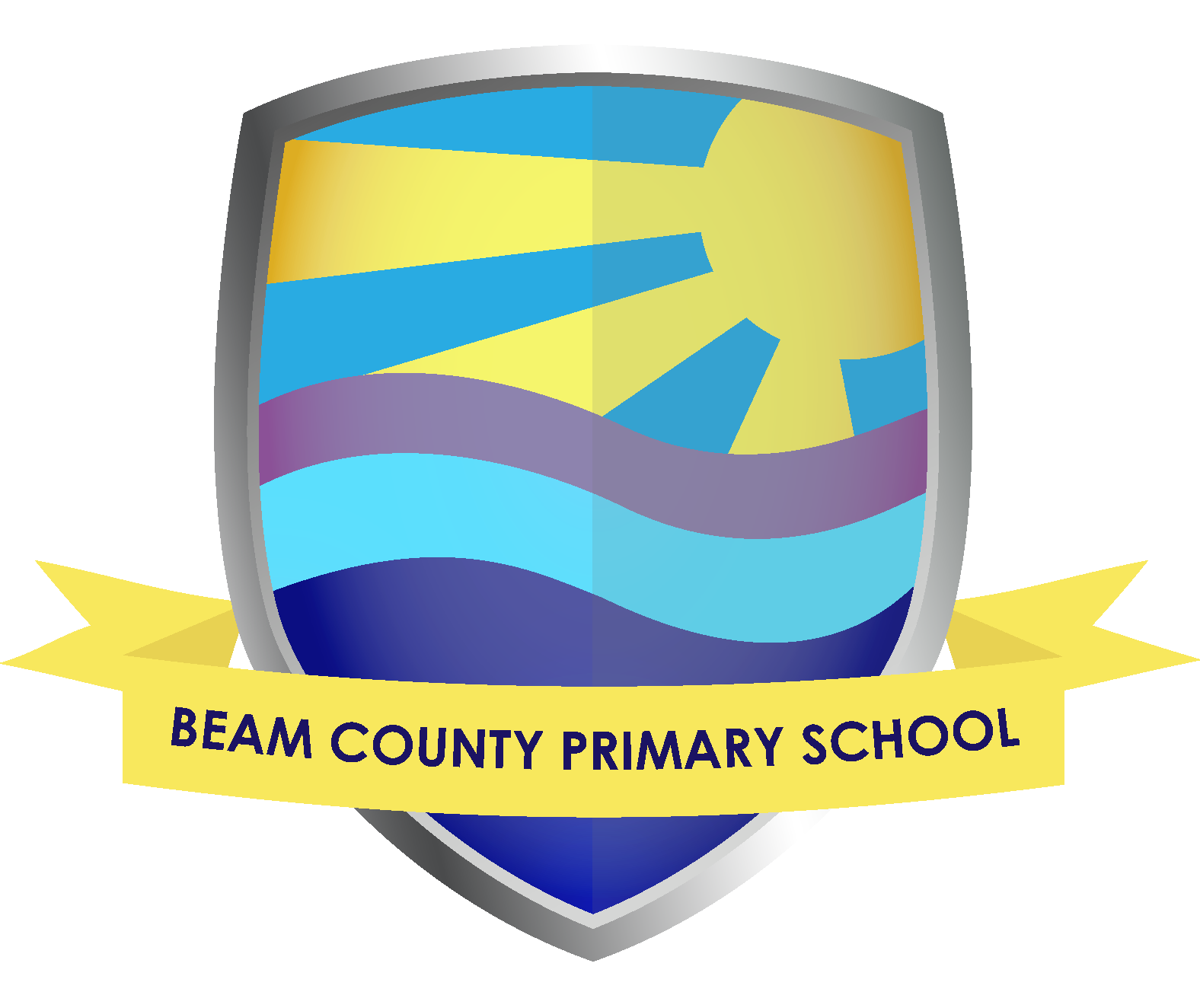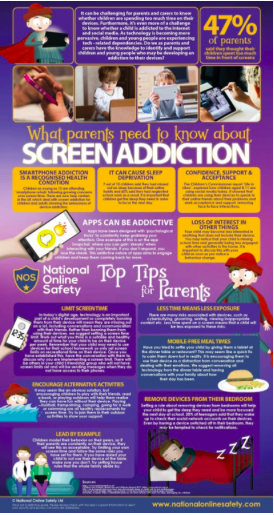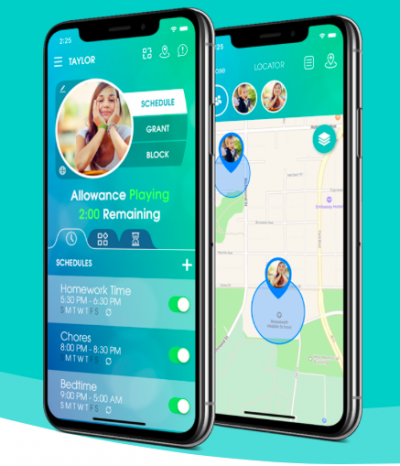Online Safety
E-safety is an integral part of children’s education in today’s digital world and is embedded in their learning at school. We also want to help our parents and children improve their own understanding of e-safety issues so they can learn to use the internet and all digital media in a safe and secure way.
At Home
As a parent you’ll know how important the internet is to children – they use it to learn, play, socialise and express themselves. It’s a highly creative place of amazing opportunities. But the technology children use every day can seem a bit daunting and you might worry about the risks your child can face online – such as bullying, contact from strangers or the possibility of them seeing illegal or inappropriate content.
You can download a simple checklist here that may help you start to protect your children online and decrease the risks they face. Or you can engage with your children regarding their use of the internet while at home. Here are some conversation starter ideas from www.childnet.com
- Ask your children to tell you about the sites they like to visit and what they enjoy doing online.
- Ask them about how they stay safe online. What tips do they have for you, and where did they learn them? What is OK and not OK to share?
- Ask them if they know where to go for help, where to find the safety advice, privacy settings and how to report or block on the services they use.
- Encourage them to help. Perhaps they can show you how to do something better online or they might have a friend who would benefit from their help and support.
- Think about how you use the internet as a family. What could you do to get more out of the internet together and further enjoy your lives online
You can download the DofE advice for parents on cyberbullying here
You can access the DofE online parents support website called Parent Info here
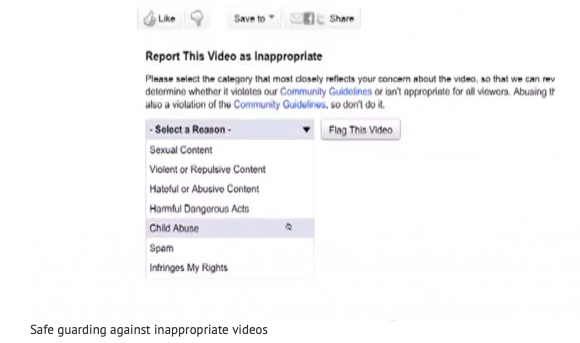
To keep parents up to date with E-safety advice, we regularly send letters and information home. You can download the latest ones here.
Parent Resources
To try and help parents with the fast-moving and changing world of internet and social media we’ve suggested a few internet sites on the right of this page which are fantastic resources, They contain information on different types of social media and how to help keep children safe.
Childnet also produces a leaflet for parents which you can download here. We have a new e-safety-parent-checklist for parents to help their children stay safe.
At School
As part of your child’s curriculum and the development of computer skills, we provide access to the internet only in teacher supervised lessons. We strongly believe that the use of the web and email is hugely worthwhile and an essential tool for children as they grow up in the modern world. But because there are always concerns about children having access to undesirable materials, we have taken positive steps to deal with this risk in school. Our school internet access provider operates a filtering system that restricts access to inappropriate materials.
At the start of the school year, each class discusses how we can all stay safe online and the dangers we may face on the internet. We then ask every child in KS2 to sign an Acceptable Use Agreement so that we know they have read and understood our school’s rules on staying safe. We also have an Acceptable Use Agreement for our younger children and you can download a copy here.
For more information, you can download our Online Safety Policy here
Smartphone Safe
If you would like to know more information on how to keep your child safe when they are using a smartphone here is a very useful and informative link here
Childnet is a great website resource for parents and children on online safety. Click here to watch an interactive video on how to keep your child safer online.
Here are two booklets parents may find useful produced by Childnet:
Young people and social networking sites
Supporting children online
Internet Safety Resources
The Department for Education launched a great new online safety tool for parents called Parent Info. It offers advice on everything from keeping children safe from online trolls to WhatsApp—a guide for parents.
Think U Know has a great section for parents and covers topics such as gaming and talking to strangers. You can also search by topic or age range to find information that is relevant to your family. You can find the site here.
Internet Matters is another great site to use – it has advice on cyberbullying, how to talk to your children about internet safety and quick guides to different types of social media such as Instagram and Snapchat. You can visit their pages here Internet Matters.
Here are quick links to a range of Internet safety sites that you may find useful too…
Blocking app
This app essentially allows parents to control their child’s internet usage, WIFI/4G access and can be done remotely. It might also help some parents who want to exert some more control around internet activity but are struggling to find the tools to do so. We suggest that you do not pay, but use the free facility.
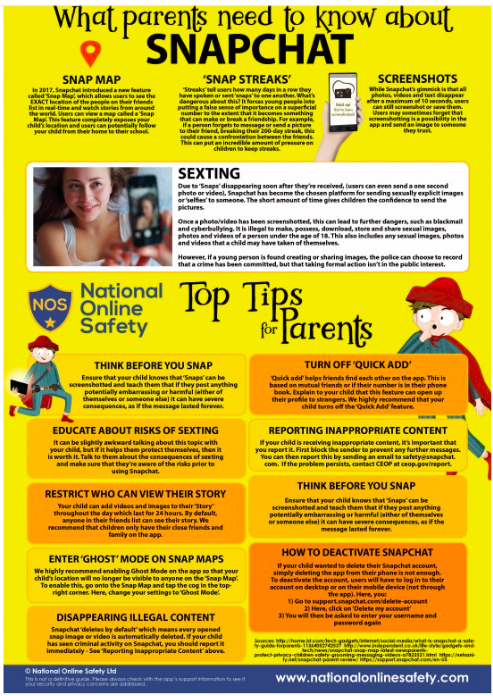

You may have read that the minimum age for WhatsApp was recently reduced in the UK from 16 to 13, in line with other Meta platforms and other countries. There have not been any changes to the platform that suddenly make it safer to use though.
The following guides highlight the privacy settings within WhatsApp and how users can try to keep themselves safe.
